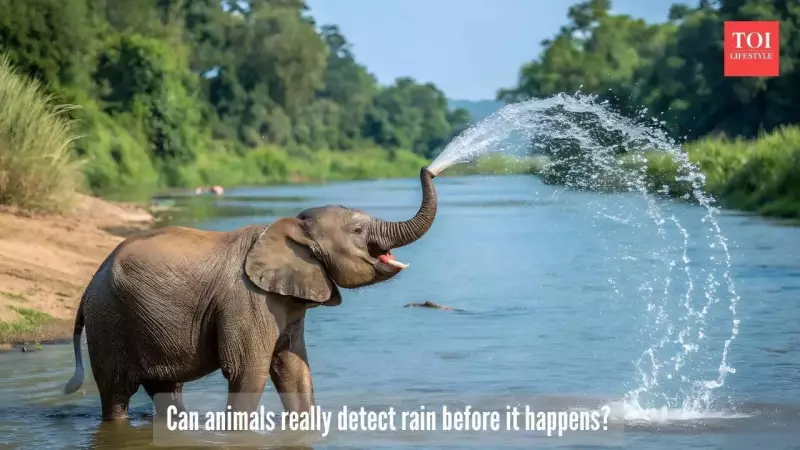
Long before modern weather satellites and radar systems existed, animals had already perfected the art of predicting storms and rainfall. While birds change their flight patterns and insects seek shelter before rains, one magnificent creature stands out as nature's most accurate weather forecaster.
The Ultimate Rain Detector: Elephant's Extraordinary Abilities
Among all animals, elephants possess the most remarkable ability to detect approaching rainfall. These gentle giants can sense the unique scent of rain and distant water sources from astonishing distances of up to 150 miles away. This incredible skill becomes particularly crucial during dry seasons in their natural habitats.
The elephant's secret weapon is its highly sensitive trunk, which functions as a sophisticated moisture detection system. Scientific research reveals that elephants have more olfactory receptor genes than any other mammal, making their trunks exceptionally sensitive to humidity and water cues in the atmosphere.
Multiple Sensory Systems at Work
Elephants don't rely on just one sense for weather prediction. They employ a combination of extraordinary sensory abilities that work in harmony. Their trunks can detect the distinctive smell of rain falling on dry earth, even when the storm is hundreds of miles distant.
According to studies referenced in the Handbook of Behavioural Sciences, elephants also utilize their highly developed hearing capabilities. They can detect infrasound - low-frequency rumbles produced by thunderstorms and rainfall that are inaudible to human ears.
Ground Vibrations and Acoustic Detection
Rainfall and thunder generate rumbling sounds below 20 Hz, known as infrasonics. Elephants sense these vibrations through specialized nerve endings located in the fatty pads of their feet and their sensitive trunks. Research confirms that elephants can detect rain storms from 150 miles away, with sudden changes in migration direction directly linked to movements toward falling rain.
Their oversized ears function like natural acoustic dishes, capturing airborne infrasonic signals with remarkable precision. By pressing their feet to the ground and interpreting seismic cues, elephants can locate approaching storms with amazing accuracy.
These extraordinary adaptations don't just benefit individual elephants - they ensure the survival of entire herds. When elephants sense rain, they may abruptly alter their migration routes, leading their families toward newly formed waterholes miles away. This innate weather forecasting ability has been crucial for elephant survival through countless generations and harsh dry seasons.





